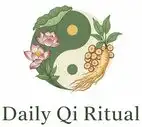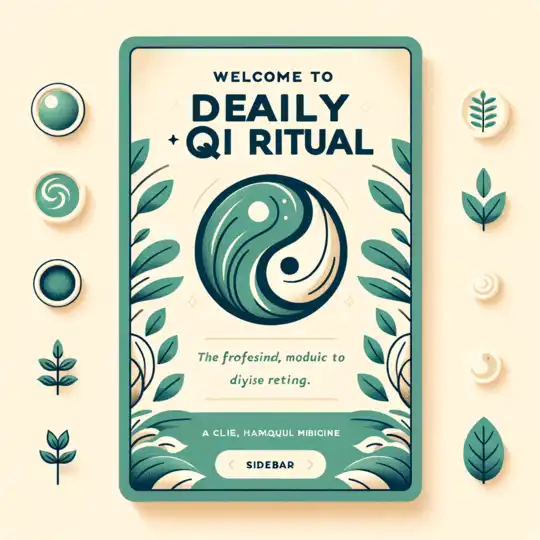Have you ever wondered how an ancient practice could hold the key to better sleep? Traditional Chinese Medicine (TCM) offers profound insights into achieving restful nights through a holistic understanding of our bodies. By embracing the principles of TCM, we can foster balance and harmony, leading to improved sleep quality and overall well-being.
What You Will Learn
- The core philosophy of TCM emphasizes the importance of balance between Yin and Yang for optimal health and sleep quality.
- Understanding how emotional disturbances and Qi imbalances contribute to sleep issues can lead to more effective treatments.
- Holistic approaches, such as acupuncture and herbal remedies, can enhance the effectiveness of conventional sleep treatments.
- Practical TCM methods, including mindfulness practices and dietary adjustments, support restful sleep and improve sleep hygiene.
- TCM diagnostic techniques, like pulse and tongue diagnosis, provide personalized insights into sleep disorders.
- Nature therapy and seasonal eating are integral TCM practices that promote well-being and enhance sleep quality.
Balancing Yin and Yang for Optimal Sleep Quality
Understanding the balance of Yin and Yang is crucial for achieving restful sleep. Below is a visual representation of common sleep issues and their TCM classifications. For a deeper dive into how these principles are applied, consider exploring understanding acupuncture: what to expect as a complementary therapy.
Heart & Kidney Disharmony
Emotional disturbances leading to sleep issues.
Yin Deficiency
Night sweats and difficulty remaining asleep.
Qi Stagnation
Stress and anxiety leading to inability to relax.
Excess Yang Energy
Restlessness and insomnia due to overactivity.
Understanding Traditional Chinese Medicine and Sleep Quality
When we talk about sleep, it’s essential to consider the wisdom of Traditional Chinese Medicine (TCM). This ancient practice offers a unique perspective on achieving restful sleep through balance and harmony. In TCM, sleep isn’t just about resting your body; it’s about nurturing your Qi, the vital energy that flows within us. Let’s explore how TCM can improve our sleep quality by reconnecting with its principles.
Defining Traditional Chinese Medicine (TCM)
At its core, Traditional Chinese Medicine is a holistic approach that integrates various practices to maintain health and prevent disease. This system encompasses acupuncture, herbal remedies, dietary therapy, and more, all aimed at restoring balance within the body. TCM is rooted in understanding the interconnectedness of our physical, emotional, and environmental well-being.
One of the fundamental concepts of TCM is the balance of Yin and Yang. These opposing forces must be harmonized for optimal health and well-being. Think of Yin as the cool, calming energy that encourages restful sleep, while Yang represents the active, energetic force that keeps us awake and alert. When these energies are in balance, we can achieve restful sleep and overall wellness. For more insights into how to integrate these principles into your daily life, explore Incorporating TCM into Daily Life.
Overview of TCM Principles and Philosophy
TCM is guided by several principles, including the belief in Qi, the importance of harmony, and the connection between the body and nature. This philosophy considers how external factors, such as the seasons, can impact our health. For instance, during winter, it's essential to nourish our Yin energy to combat the cold and promote restful sleep.
As we engage with TCM practices, we can learn to listen to our bodies and recognize when we need to restore balance. By incorporating TCM principles into our daily lives, we can create a strong foundation for better sleep and overall well-being.
Importance of Balance in Yin and Yang for Sleep
Finding balance between Yin and Yang is crucial when it comes to sleep quality. An excess of Yang energy can lead to restlessness and insomnia, while too much Yin might cause lethargy and low energy. Understanding this balance can help us create a personalized approach to improve our sleep.
- Identify your dominant energy: Are you often restless, or do you feel sluggish?
- Adjust your daily routine: Incorporate practices that enhance Yin energy, like calming teas or gentle stretching.
- Mindfulness practices: Engage in meditation or deep breathing to help balance your energies.
By actively working on balancing our Yin and Yang, we can foster a tranquil state that promotes a better night’s sleep. At Daily Qi Ritual, I encourage you to embrace these concepts as you explore your sleep patterns and find harmony in your life.
The Connection Between TCM Practices and Sleep Improvement
Understanding how TCM views sleep disorders can shed light on effective solutions. In TCM, sleep issues are often linked to imbalances in Qi or emotional disturbances. Instead of merely treating symptoms, TCM seeks to address the root cause of sleep problems, providing a holistic approach that can lead to lasting improvements.
For example, if you experience insomnia due to stress, TCM may suggest practices that calm the mind and nourish the body. By focusing on the whole person, TCM creates a pathway to enhanced sleep and overall well-being.
Understanding Insomnia Through a TCM Lens
In TCM, insomnia can manifest in various ways, including difficulty falling asleep, waking frequently, or experiencing restless sleep. These symptoms are often categorized based on their underlying causes:
- Heart and Kidney Disharmony: This may cause emotional disturbances leading to sleep issues.
- Yin Deficiency: Often presents as night sweats and difficulty remaining asleep.
- Qi Stagnation: Stress and anxiety may lead to an inability to relax and fall asleep.
By recognizing these patterns, we can take steps to address the imbalances and improve our sleep quality.
How TCM Addresses Sleep Disorders Holistically
TCM approaches sleep disorders with a comprehensive view that encompasses physical, emotional, and environmental factors. Treatment may involve various methods, including acupuncture, herbal remedies, and lifestyle modifications. This multifaceted strategy allows for a deeper understanding of how we can enhance our sleep.
For instance, herbal teas made from calming ingredients, such as chamomile or lotus seeds, can help nurture Yin energy and promote relaxation. At Daily Qi Ritual, I emphasize the importance of these simple yet effective practices in achieving a balanced lifestyle. Delve deeper into these remedies with Herbal Teas for Restful Sleep.
TCM Diagnostics for Sleep Disorders
To identify the root causes of sleep issues, TCM practitioners often use diagnostic techniques that may include:
- Pulse Diagnosis: Assessing the quality of your pulse to gauge your body’s energy.
- Tongue Diagnosis: Examining the tongue’s appearance, color, and coating for insights into your health.
- Personal Health History: Discussing emotional and physical symptoms that may contribute to sleep issues.
These diagnostic methods play a vital role in crafting a personalized treatment plan tailored to your unique needs and experiences. By understanding your body's signals, you can take charge of your sleep quality. Embracing TCM’s holistic approach may open new doors for restful nights and brighter days ahead!
Quick Summary
Here's a brief recap of the key points discussed so far:
- Understanding TCM: Traditional Chinese Medicine is a holistic approach focusing on the balance of Yin and Yang to enhance overall health.
- Importance of Balance: Achieving harmony between Yin and Yang is crucial for improving sleep quality and addressing insomnia.
- Holistic Approaches: TCM addresses sleep disorders by considering physical, emotional, and environmental factors through a variety of practices.
Integrating Traditional Chinese Medicine with Modern Approaches
In today's fast-paced world, many people are searching for effective ways to improve their sleep quality. Integrating Traditional Chinese Medicine (TCM) with modern practices can provide a holistic approach to addressing sleep disorders. By combining the wisdom of TCM with contemporary methods, we can create a well-rounded strategy for achieving restful nights.
As someone passionate about TCM and holistic well-being, I have seen firsthand how this integration can enhance our health. Understanding the latest research and expert opinions is crucial to fully appreciate the synergy between TCM and Western medicine. Let's take a closer look at how these two worlds can work together to improve sleep quality.
Research on TCM and Western Medicine for Sleep Disorders
Numerous studies have emerged highlighting the benefits of combining TCM practices with Western approaches to treat sleep disorders. Researchers have found that acupuncture, herbal remedies, and lifestyle adjustments—rooted in TCM—can complement traditional treatments effectively. These studies often emphasize the following points:
- Enhanced efficacy when combining acupuncture with cognitive behavioral therapy (CBT).
- Improved sleep quality through herbal supplements alongside sleep medications.
- Lower levels of anxiety and stress reported by patients using TCM techniques.
Experts in integrative medicine echo these findings, suggesting that TCM can fill gaps left by conventional treatments. As we explore these connections, it becomes clear that a collaborative approach can lead to better health outcomes.
Recent Studies Highlighting Combined Treatment Efficacy
Recent research has shed light on various aspects of combined treatments for insomnia. One notable study showed that patients who received both acupuncture and medication reported significantly better sleep quality. This indicates that TCM can be a valuable complement to Western treatments.
Additionally, some studies have focused on the effectiveness of specific TCM herbal formulas, like He Shou Wu and Jujube, revealing their positive impact on sleep patterns when used alongside conventional therapies. Isn't it fascinating how ancient wisdom can still hold relevance in modern medicine?
Expert Opinions on Integrative Approaches for Insomnia
Leading experts in the field of sleep medicine advocate for a more integrative approach to treating insomnia. They believe that TCM practices, such as acupuncture and herbal remedies, can enhance the effectiveness of conventional treatments. This perspective encourages a more open dialogue between practitioners of both systems, allowing patients to benefit from a wider range of options.
In my experience at Daily Qi Ritual, I've seen how individuals often respond positively when they embrace both TCM and modern medicine. It’s a reminder that we can blend the best of both worlds to foster better health and well-being.
Addressing Common Concerns and Misconceptions about TCM
Many individuals have questions about TCM and what to expect from its treatments, especially regarding sleep issues. It's essential to address these concerns openly, helping to demystify the process. Here are some common FAQs:
Frequently Asked Questions (FAQs)
- What is the core philosophy of TCM regarding sleep?
- TCM views sleep as a crucial aspect of balancing Yin and Yang energies. Optimal sleep is achieved when these energies are in harmony, promoting rest and restoration.
- How does TCM diagnose sleep disorders?
- TCM practitioners use diagnostic techniques like pulse and tongue diagnosis, along with a detailed health history, to identify underlying imbalances contributing to sleep issues.
- Are TCM treatments safe for insomnia?
- Generally, yes. TCM practices such as acupuncture, herbal remedies, and dietary adjustments are natural and often non-invasive. When administered by a trained practitioner, they are considered safe.
- How long does it take to see results from TCM treatments for sleep?
- The timeline for results varies by individual. Many people report improvements within a few weeks, but consistent practice and adherence to the treatment plan are key for lasting benefits.
- Can TCM be combined with Western medicine for sleep disorders?
- Yes, many studies and experts support an integrative approach. Combining TCM practices with conventional treatments can enhance efficacy and provide a more comprehensive solution for sleep disorders.
By understanding these elements, we can ease concerns and encourage individuals to explore TCM practices as part of their sleep improvement journey. For example, incorporating evening routines for better sleep can significantly enhance the effectiveness of TCM treatments.
Safety and Efficacy of TCM Practices for Insomnia
Safety is a top priority when considering any treatment. TCM practices have been used for centuries, and their efficacy is supported by both historical and modern evidence. Practitioners are well-trained to ensure safe and effective application of acupuncture, herbal remedies, and other techniques.
Moreover, many people find that TCM allows them to address insomnia without the side effects often associated with conventional medications. It’s about finding a balance that works for you, and TCM offers a gentle path towards that goal.
Enhancing Sleep Hygiene Through TCM
Good sleep hygiene is essential for achieving restful sleep. TCM provides valuable insights into creating an optimal sleep environment. Here are some key practices to consider:
- Maintain a consistent sleep schedule to regulate your body's internal clock.
- Keep your bedroom dark, cool, and quiet to promote restful sleep.
- Engage in calming activities before bed, such as meditation or gentle stretching.
By incorporating TCM principles into our sleep hygiene practices, we can cultivate an environment conducive to relaxation and restoration.
Incorporating Nature Therapy and Seasonal Eating
Nature therapy is a beautiful aspect of TCM that emphasizes the connection between our well-being and the natural world. Spending time outdoors can reduce stress and promote relaxation, both of which are crucial for good sleep.
Additionally, seasonal eating—choosing foods that align with the natural rhythms of the seasons—helps us maintain balance within our bodies. This practice not only nourishes us but also supports better sleep quality. As I often say at Daily Qi Ritual, embracing the wisdom of nature can be transformative! You might also find benefits in mindful practices, such as those discussed in Mindfulness in Everyday Life, to further enhance your well-being.
Conclusion: Embracing TCM for Holistic Sleep Solutions
Incorporating TCM into our approach to sleep can lead to meaningful improvements in our quality of life. By understanding how TCM practices align with modern approaches, we can create a comprehensive plan to address insomnia. It’s all about finding what resonates with you and your unique needs.
As we conclude this exploration of TCM and sleep, I encourage you to embrace personalized approaches. Each individual's journey is different, and your path to better sleep may involve a blend of TCM practices tailored just for you.
Call to Action for Further Exploration and Engagement
I invite you to share your experiences with TCM and sleep improvement! Have you tried incorporating TCM practices into your bedtime routine? Your stories can inspire others seeking restful nights.
For those eager to learn more, plenty of resources are available on TCM and sleep enhancement. Visit Daily Qi Ritual for articles, guides, and community discussions that can help you integrate these ancient practices into your life. Together, let’s cultivate our Qi and embrace the harmony of restful sleep!
Recap of Key Points
Here is a quick recap of the important points discussed in the article:
- Holistic Approach of TCM: Traditional Chinese Medicine emphasizes the interconnectedness of physical, emotional, and environmental well-being for better sleep quality.
- Balance of Yin and Yang: Achieving harmony between these energies is crucial; excess Yang can cause insomnia, while excess Yin may lead to lethargy.
- Root Cause Treatment: TCM focuses on addressing the underlying causes of sleep issues, rather than just the symptoms.
- Holistic Diagnostics: Techniques like pulse and tongue diagnosis help practitioners tailor treatments for individual sleep disorders.
- Integration with Modern Medicine: Combining TCM practices with contemporary methods can enhance treatment efficacy for sleep disorders.
- Emphasis on Sleep Hygiene: Good sleep hygiene practices, such as maintaining a consistent sleep schedule and engaging in calming activities, are essential for restful sleep.
- Nature Therapy and Seasonal Eating: Incorporating nature therapy and aligning food choices with seasonal rhythms can further support sleep quality.









